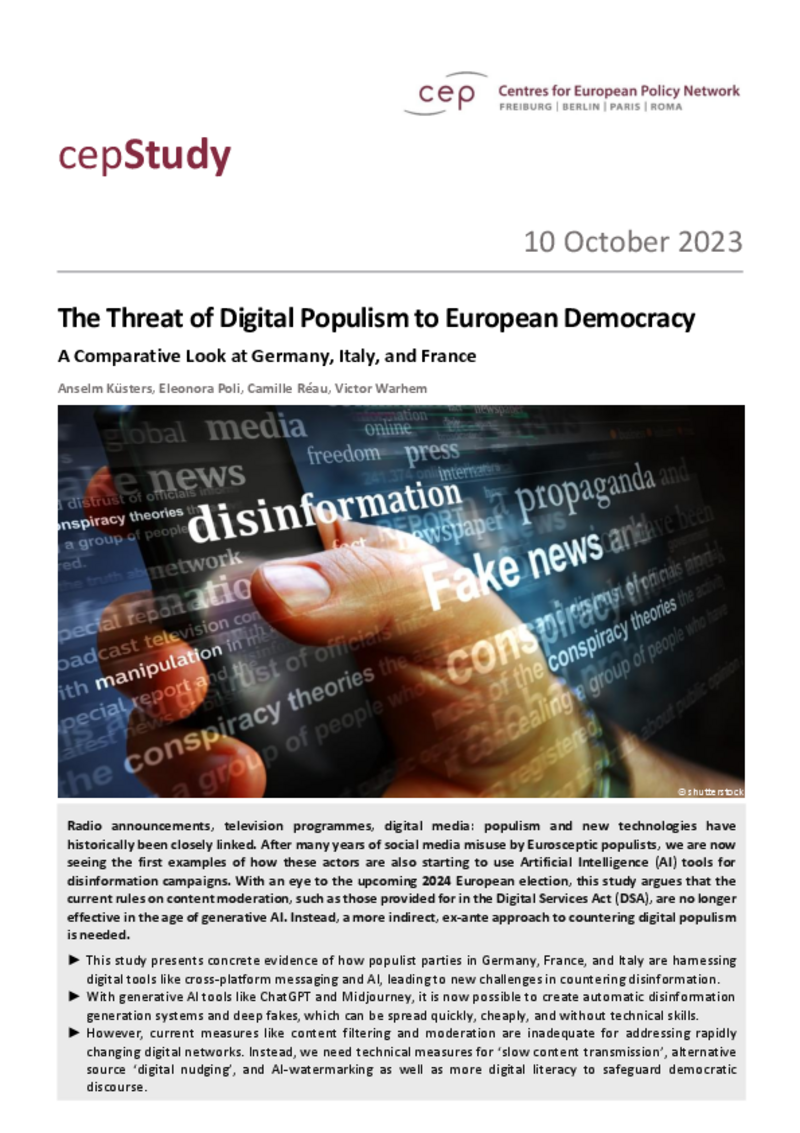
Information Technology
The Threat of Digital Populism to European Democracy (cepStudy)
cepStudy
"If we think about next year’s European elections, the existing rules on content moderation, as provided for in the Digital Services Act (DSA), are already outdated in the age of generative AI," warns Berlin-based cep digital expert Anselm Küsters. He conducted the study together with cep researchers Camille Réau from Freiburg, Victor Warhem from Paris and Eleonora Poli from Rome. Together they call for an indirect, so-called ex-ante approach to combat digital populism on platforms.
"With generative AI tools like ChatGPT and Midjourney, it is possible to create automated systems for generating misinformation and deepfakes that can be spread quickly, cheaply and without technical knowledge," says Eleonora Poli. This added layer of complexity blurs the line between human-generated and AI-generated content, according to Warhem.
As a result, today’s digital ecosystem hinders the cross-fertilisation of different perspectives, undermines the basic principles of democratic discourse and ultimately increases the chances of success for populism, warns Camille Réau. It is therefore important to "fix this broken digital marketplace of ideas in order to cultivate a more inclusive and intellectually robust online discourse that promotes a genuine exchange of ideas".
Download PDF
| The Threat of Digital Populism to European Democracy (cepStudy) (publ. 10.10.2023) | 964 KB | Download | |
 | |||





